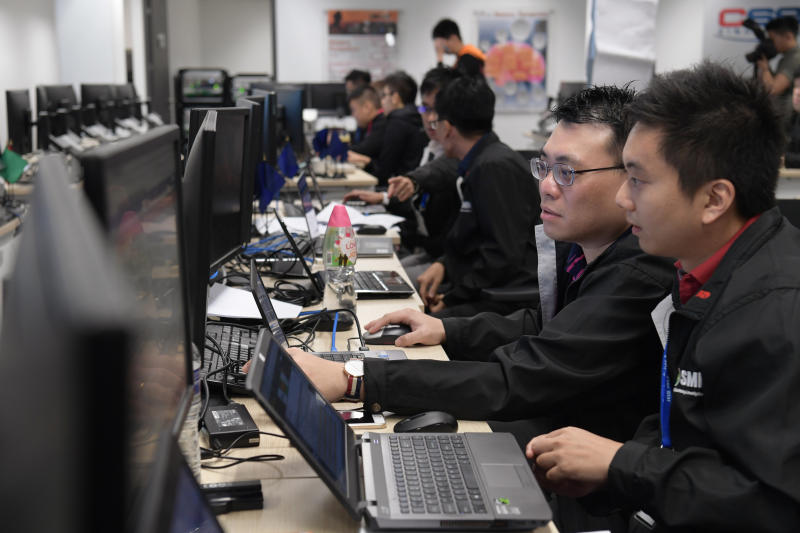Cyber security is an 'international problem', requires cross-country collaboration, say tech experts
Sign up now: Get insights on Asia's fast-moving developments

Public agencies' National Cyber Incident Response Teams taking part in a cyber-attack simulation during Exercise Cyber Star at the Cyber Security Agency of Singapore’s headquarters on July 18, 2017.
PHOTO: ST FILE
SEOUL - Cyber security is an "international problem" that goes beyond national borders and requires cross-country collaboration as well as working with private tech companies like Google.
This is according to tech experts from Singapore and South Korea who spoke at The Straits Times panel discussion on cyber security in Seoul on Thursday (May 17).
Mr David Koh, chief of the Cybersecurity Agency of Singapore, said the city state is in discussions with South Korea to boost cooperation and share critical information and resources.
"International and regional cooperation is essential for cyber security. (It) is not a national problem. Cyber security is an international problem, and the attackers don't respect national borders. In fact they deliberately launch their attacks across national borders, and sometimes over multiple borders, so it makes it harder for the good guys to detect... So we must work together."
Experts also emphasised the need for the government to work with private companies such as major telcos and internet firms like Google, but acknowledged there are challenges to be overcome.
Mr Choi Sang Myung, director of South Korean software firm Hauri Inc and adviser to the local police and National Intelligence Service, noted that "free and transparent communication" between the public and private sectors is not easy due to conflicting self interests. Such collaboration is necessary so both sides can share information and a common understanding in boosting cyber security, he added.
Professor Brent Kang from the Graduate School of Information Security at Korea Advanced Institute of Science & Technology called for a "free flow" of talents across Asian countries, so as to enhance cross-border information sharing.
Mr Louis Hur, founder and CEO of South Korean software firm NSHC, stressed the need for Asian countries to safeguard their critical infrastructure - systems and assets that are essential for countries to function effectively. Not enough is being done, he said.
The four-member panel discussion was part of the 9th Asian Leadership Conference (ALC) organised by South Korea's largest newspaper, Chosun Ilbo.
The two-day event, which ended yesterday, drew experts from all over the world and covered topics ranging from security to diplomacy, technology and economy. This year's theme was "Globalisation in crisis: navigating the world with new opportunities".
The Straits Times became an ALC media partner for the first time this year, and senior technology correspondent Irene Tham moderated the discussion on cyber security.
Public education and manpower training are necessary to ensure cyber security at a time when the world is exposed to online attacks and data breaches, noted Ms Tham.
Mr Koh agreed, giving the example of how the Singapore Government is now working with schools to instil awareness of cyber security in young children.
He cited a public campaign called Cyber Tips 4 You, which reminds people to stay safe online by installing anti-virus programs, looking out for phishing scams, using a good password with two-factor authentication, and installing software updates.
"Cyber is here to stay. We are becoming wedded to our way of life on the net, and looking into the future, with IoT (Internet of Things) and AI (artificial intelligence), we will become even more dependent on the internet, so we need to find a way to secure the internet."
Correction note: The article has been edited to reflect the proper name of the public campaign cited by Mr David Koh. We are sorry for the error.


